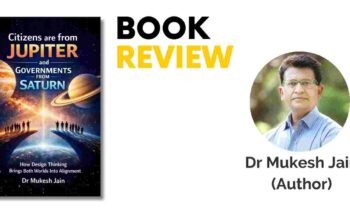Tanya’s “Unveiling the Mahabharata” is an exceptional work that invites readers into the heart of one of India’s most profound epics, the Mahabharata. Through a blend of storytelling and philosophical inquiry, the author explores themes of fate, free will, and the intricate web of karma that influences our lives. The book serves not only as a retelling of the epic but as a deep dive into the moral and ethical dilemmas faced by its characters, encouraging readers to reflect on their own life experiences.
From the outset, Tanya sets the stage by presenting a captivating premise: the exploration of whether we truly control our destinies or if larger cosmic forces are at play. This central question resonates throughout the narrative, as we follow the fateful journeys of key figures like Bhishma, Arjuna, and Abhimanyu. The author artfully navigates through their stories, revealing the complexities behind their choices and the repercussions that unfold as a result.
One of the most striking aspects of “Unveiling the Mahabharata” is Tanya’s ability to make the characters relatable. Bhishma, with his boon of invincibility, meets a tragic end that raises questions about the nature of power and the inevitability of fate. Similarly, the untimely death of the young warrior Abhimanyu in Dronacharya’s formidable Chakra Vyuha serves as a poignant reminder of the innocence lost in the throes of war. Each character’s journey is not merely a historical recounting but a reflection on the human condition, making the narrative deeply impactful.
The book is structured to allow readers to traverse different timelines and realms, weaving between past and present. This narrative technique enhances the exploration of karma, emphasizing that our actions echo through lifetimes. Tanya’s prose is both lyrical and accessible, balancing rich, evocative descriptions with clear philosophical reflections. Her writing invites readers to ponder profound questions without feeling overwhelmed, creating a space for contemplation and discussion.
Throughout the book, Tanya does not shy away from the darker aspects of the Mahabharata, such as betrayal, sacrifice, and moral ambiguity. These themes are explored with sensitivity, encouraging readers to engage with the ethical complexities rather than offering simplistic answers. This approach fosters a deeper understanding of the epic’s messages, revealing how the dilemmas faced by ancient warriors resonate with contemporary issues of choice, consequence, and the search for meaning.
Critics have praised “Unveiling the Mahabharata” for its thoughtful examination of karma and the human experience. Anand Ranganathan’s endorsement highlights its capacity to provoke thought, while Francois Gautier emphasizes its exploration of underlying messages that are still relevant today. The book serves as a bridge between ancient wisdom and modern existential questions, making it a compelling read for scholars and casual readers alike.
Ultimately, “Unveiling the Mahabharata” transcends mere storytelling; it is an invitation to engage with the eternal questions that define our existence. As Tanya deftly peels away the layers of the epic, she reveals timeless truths about duty, sacrifice, and the interconnectedness of all lives. The book challenges us to consider our own narratives and the forces that shape them, leaving readers with the profound realization that there is often more to our lives than meets the eye.
Tanya’s “Unveiling the Mahabharata” is a masterful exploration of an epic that continues to inspire and provoke thought. It is a beautifully crafted work that resonates with anyone seeking to understand the complexities of life, making it a must-read for those interested in mythology, philosophy, and the intricacies of human nature. As we journey through the pages, we are reminded that our stories, like those of the Mahabharata’s characters, are intricately woven into the fabric of fate, choice, and consequence.


